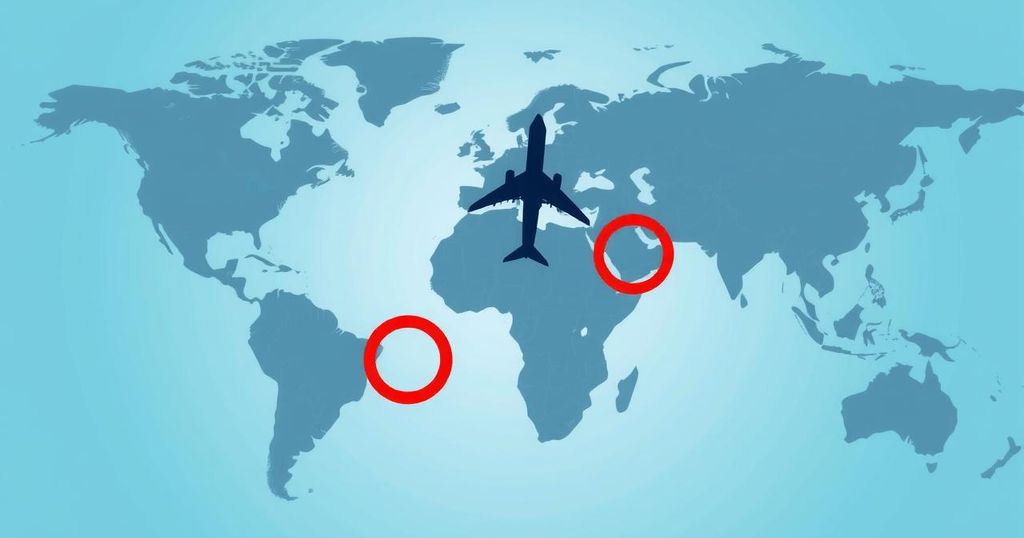Trump Administration Considers Expanding Travel Restrictions for 43 Countries
The Trump administration is reviewing a proposal to expand travel bans affecting citizens from 43 countries, categorizing them into three lists: Red (complete ban), Orange (restricted visas), and Yellow (60-day rectification period). This plan reignites discussions on the legality and morality of travel bans, as the impact on existing visa holders and diplomatic relations remains unclear.
The Trump administration is reportedly considering an expansion of travel restrictions that could target citizens from up to 43 countries. This proposal, which expands upon previous travel bans from President Donald Trump’s first term, is currently under internal review, as reported by the New York Times. The countries are classified into three levels of restriction, which may change after diplomatic and security assessments.
The “Red” list comprises 11 countries whose citizens would be completely banned from entering the United States. These nations include Afghanistan, Bhutan, Cuba, Iran, Libya, North Korea, Somalia, Sudan, Syria, Venezuela, and Yemen.
The “Orange” list features 10 countries where travel would be significantly restricted. Citizens from these nations, such as Belarus, Eritrea, Haiti, and Russia, may still be eligible for some visa types, though they would require mandatory in-person interviews.
The “Yellow” list consists of 22 countries granted a 60-day period to address specific security and information-sharing concerns. Nations like Angola, Cameroon, and Zimbabwe are included, and failure to meet these standards may result in their reclassification to a stricter category.
Officials from the State Department and security agencies are reviewing the proposed list, considering both the accuracy of the deficiencies noted and the potential diplomatic repercussions. Key issues remain, including the impact of the proposed ban on individuals with existing visas or green cards, and the effects on diplomatic relations with nations such as Russia and Venezuela.
The proposal has spurred renewed discussions regarding the constitutional and ethical implications of travel bans. Although earlier bans from Trump’s term faced legal challenges, a revised version was ultimately upheld by the Supreme Court. President Biden had previously dismantled these travel restrictions, deeming them detrimental to national integrity. Trump’s new orders invoke national security as a rationale for expanding these limits, particularly by including countries like Bhutan and Russia, which increases concerns over diplomatic relations.
The Trump administration is considering a significant expansion of travel restrictions, potentially affecting citizens from 43 nations through a three-tiered system. The proposal includes complete bans, restricted visa access, and a timeframe for countries to address security issues. The legal and ethical dimensions of such travel bans continue to be scrutinized, especially in light of the implications for international diplomacy and relations.
Original Source: www.financialexpress.com




Post Comment